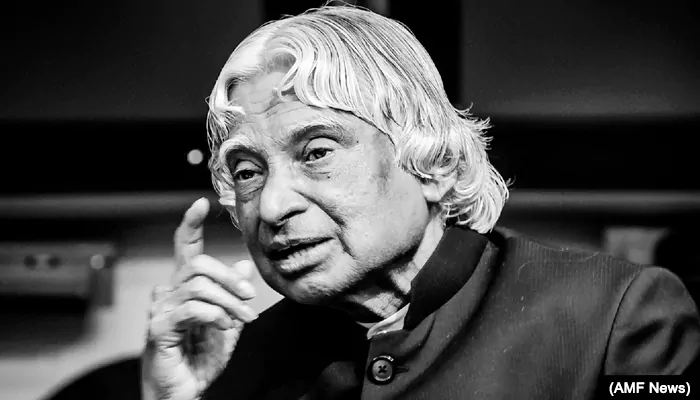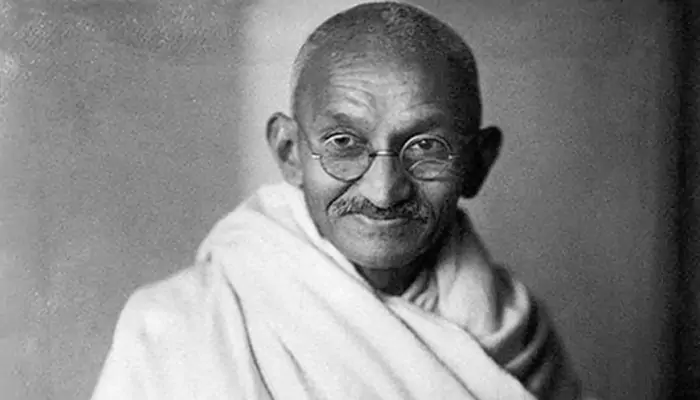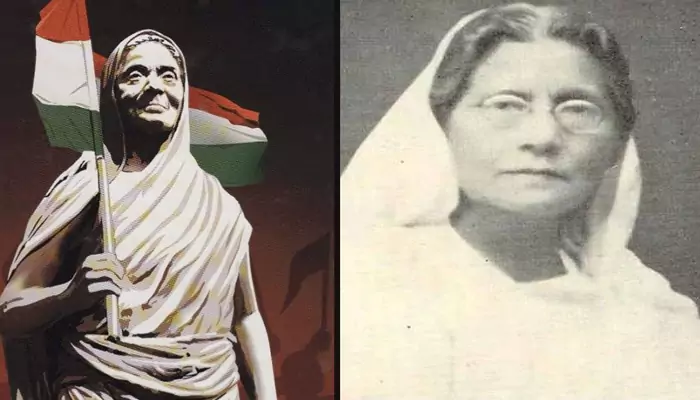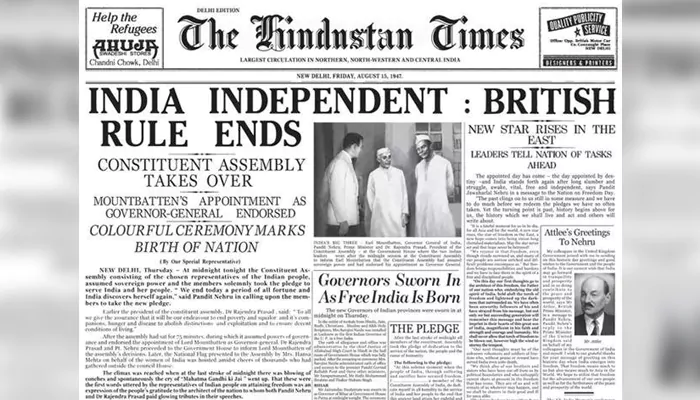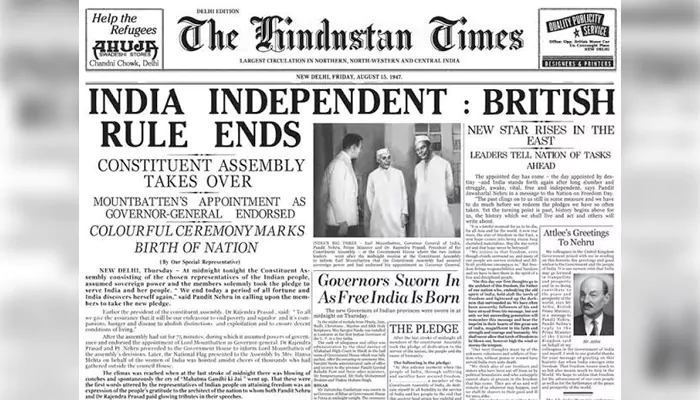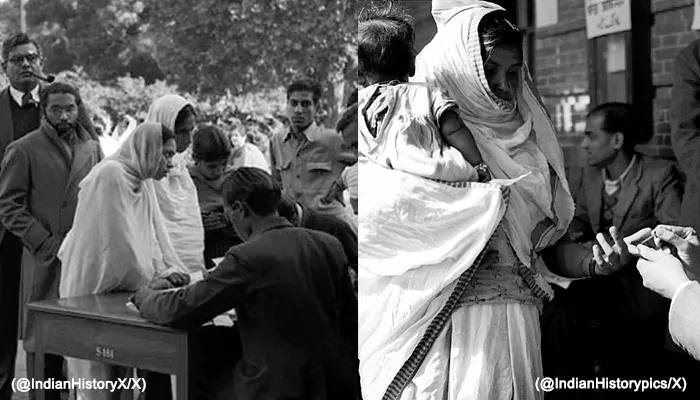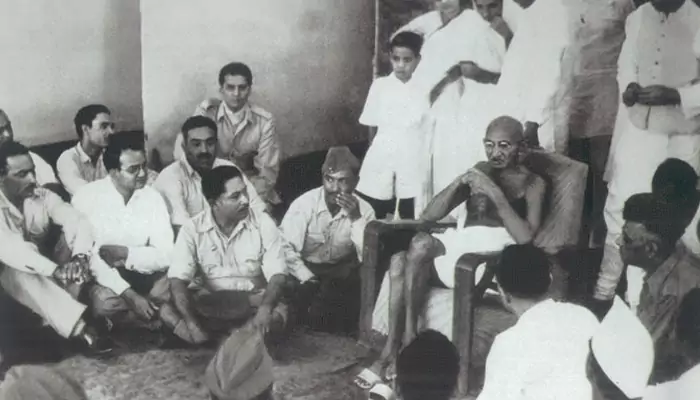Swami Vivekananda's Birth Anniversary: What Was So Special About His Iconic Speech In Chicago, 1893?
- Sayan Paul
- 11 months ago
- 4 minutes read

On September 11, 1893, Swami Vivekananda delivered his iconic speech at the Chicago Convention of Parliament of Religions.
Rabindranath Tagore put it perfectly, "If you want to know India, study Swami Vivekananda". And well, if you want to know Vivekananda, study the iconic speech that he delivered at the prestigious Chicago Convention of Parliament of Religions, in 1893. Because more than a 'speech', it's an encapsulation of his vision and philosophy. With his opening words, "Sisters And Brothers Of America", he represented the spiritual richness of India and the principles of Hinduism. And by the time he ended his speech, he had conquered the entire world, with countless individuals finding a leader in him. More than a century later, his words continue to guide us in every way possible.
1893 :: Swami Vivekananda In World's First Religious Parliament, Chicago pic.twitter.com/Qxdgzqvpm9
— indianhistorypics (@IndiaHistorypic) May 23, 2019
(Credit: indianhistorypics)
Well, it's Swami Vivekananda's 162nd birth anniversary today. On this occasion, let's discuss what makes his Chicago speech so iconic.
Religious Harmony
Vivekananda delivered his speech at a time when religious conflicts were common across the world. In his speech, he highlighted the principles of India and Hinduism, emphasizing that all religions lead to the same truth - which is universal. He quoted, "As the different streams having their sources in different places all mingle their water in the sea, so, O Lord, the different paths which men take through different tendencies, various though they appear, crooked or straight, all lead to Thee."

As the world continues to suffer from extremism, Swami Ji's words are relevant even today.
A Message Of Universal Tolerance
In his speech, Swami Ji spoke against fanaticism, explaining why it's so detrimental to society. He highlighted the need for universal tolerance, urging people to embrace diversity with open hearts. Referring to India's cultural history, he said, "We believe not only in universal toleration, but we accept all religions as true. I am proud to belong to a nation that has sheltered the persecuted and the refugees of all religions and all nations of the earth. I am proud to tell you that we have gathered in our bosom the purest remnant of the Israelites, who came to southern India and took refuge with us in the very year in which their holy temple was shattered to pieces by Roman tyranny. I am proud to belong to the religion which has sheltered and is still fostering the remnant of the grand Zoroastrian nation."
Swami Vivekananda spent more than a quarter of his life as a Sannyasin in the United States of America. M Venkaiah Naidu, Vice President of India, is in the U.S. to commemorate the 125th anniversary of Vivekananda’s address in Chicago to the Parliament of World Religions in 1893. pic.twitter.com/RQs2dwceaw
— U.S. Embassy India (@USAndIndia) September 10, 2018
(Credit: U. S. Embassy India)
The Power Of Kindness, Compassion, And Selfless Service
Swami Ji believed that it's kindness and compassion that conquer the world. And in his speech, he emphasized the importance of these, along with selfless service to others, to pave for a better future. He quoted a beautiful line from Gita (which showcases his willingness to help others regardless of who they are): "Whosoever comes to Me, through whatsoever form, I reach him; all men are struggling through paths which in the end lead to me."

He highlighted the unprecedented power of selfless service - which, according to him, is a direct way to worship God. At a time when colonialism was at its peak, Swami Ji's words reminded everyone of the greater purpose of life.
Swami Vivekananda ji represented India at the Parliament of the World's Religions at Chicago in 1893.
— ICCR (@iccr_hq) January 12, 2023
On his Birth Anniversary, sharing an excerpt of his historic speech !!#NationalYouthDay #SwamiVivekananda pic.twitter.com/wnC9F7XRXr
(Credit: ICCR)
Through his Chicago speech, Swami Ji provided a message of universal brotherhood. He made us believe that even amidst all the differences, it's possible to coexist peacefully. This, even after so many years, holds equal significance.

